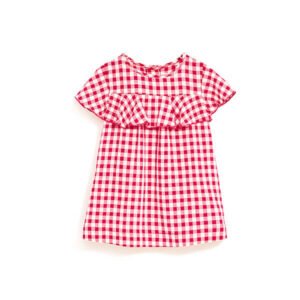The locations where those tools will be used and the types of weeds that are present play dominant roles in deciding which weeding tools are best suited for the job. A carload of people left from the Earl, and Devon was kind enough to drop me off at Camelot, where I hoped other parties would be showing up soon. You must take the time to see what the policy offers you and whether or not it suits your needs, many people rush into buying a policy quickly only to find when they come to claim on it that they aren’t able to. In the recent times, most of the people have realized the benefits of marijuana and thus, have appealed for its legalization. Though some weeds release without a fight, others will have gardeners wondering whether they need a jackhammer to dislodge them. Some of those early adopters have even turned into the startup’s largest investors. The plastic grip is designed to help gardeners keep a firm hold while they work. The curved handle on the Radius Garden weeding tool is designed to keep the user’s hand and wrist aligned while pushing the serrated aluminum tool next to the root to lift out the weed.
Another versatile weeder that doubles as a transplanter, this Radius hand tool proved impressive for the price. For instance, we used the Warren hoe only in the garden, but we tested the Radius weeding tool in both areas. With our shopping considerations in mind, which we look at later in greater detail, we created a list of the best weeding tools for typical lawn, garden, and landscape projects. Shoppers looking for the best weeding tool will want to check out our shopping considerations and product reviews ahead. Those looking for nontoxic ways to eliminate weeds from lawns and gardens typically begin by simply pulling them by hand. This all changed in 1999 when my husband Greg found my mother’s strange looking garden tool in her garage. For inclusion in this guide, we required that a tool offer excellent results in one or more critical weeding tasks: general weed control in raised or in-ground garden beds, general weed control in container gardens or confined spaces, or removing taproot and rosette weeds from lawns. For the vast majority of people, 320kbps is more than adequate for listening. Manual weeding, on the other hand, gets the job done without harm to people, טלגראס חיפה pets, or the environment.
Gardeners need a strong grip to weed in dense soil, but as hands tire, grip strength suffers. We are thrilled to introduce Grampa’s Weeder to gardeners everywhere. Production of the stand-up weeder stopped in 1941 so that all available metal could be put towards the war effort and unfortunately, once the war ended, manufacturing of this wonderful weed removal tool never resumed. As the saying goes, “Everything Old Is New Again”, and Grampa’s Weeder proves it every day with its ingenious design that has stood the test of time. In the roughly 43-minute address, an exhausted, under-the-weather King – he initially had asked his friend, the Rev. Ralph David Abernathy, to fill in for him, but later relented – covered many of the topics that had made him the foremost civil rights figure of the time. There is however one flail blade I will recommend, it’s expensive but if you want something that’s going to last a long time and has superior cutting power to anything else on the market then this blade will be your best option. It’s made to easily pierce soil and let the user apply pressure from the side, bottom, or any angle in between to find the weed’s weakest point.
If organic matter is needed, you should add it to the lower level at this point. Garden Care, round point shovel with tempered steel blade. The curved shaft and fingernail-like shape of the blade dug deep into the soil for removal of taproot, yet it just scratched the surface to cultivate safely next to young seedlings. The longer the taproot, the more difficult it becomes to eradicate. Read on to learn more about these tools and how they performed in our tests. That said, timing and טלגראס כיוונים קריית גת כפר סבא – telegram4israel.net – soil conditions are key to weed removal: After a rainfall, soil is softer and more willing to release roots. It was very effective at removing established taproot weeds, with the narrow blade easily reaching 5 to 6 inches deep to loosen the soil for thorough removal without breaking the root. Though herbicides control weeds, these chemicals can pose serious health risks to humans and wildlife. Some weeds, such as dandelions, develop a single taproot that grows deeper into the soil as the plant matures.











